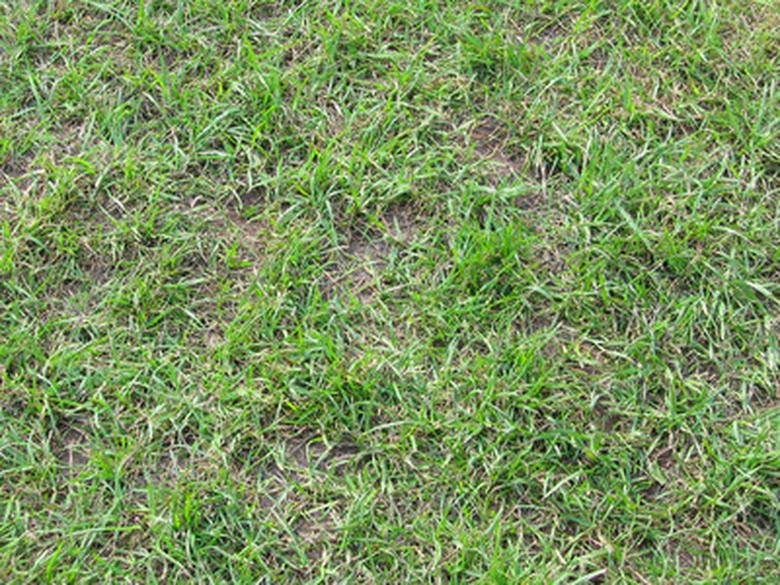How To Kill Grass With Vinegar
Typical uses for vinegar include cooking and cleaning, but you can also use it to kill grass. White distilled vinegar kills grass in the cracks of sidewalks, driveways and in other places around the yard where you do not want grass growing. Using vinegar in this way can also kill any weeds that may be growing along with the grass, providing an all-natural way to kill grass and weeds without using harsh chemicals.
Step 1
Cut the grass down as short as you can get it with a lawnmower or shears. It is important that the grass is short enough when the vinegar is applied so it can get into the soil and to the roots to prevent growth.
Step 2
Pour full strength vinegar onto the grass. Cover the entire area. Make sure that the soil is soaked.
- Typical uses for vinegar include cooking and cleaning, but you can also use it to kill grass.
- White distilled vinegar kills grass in the cracks of sidewalks, driveways and in other places around the yard where you do not want grass growing.
Step 3
Check the grass in one week to see if the first treatment succeeded. If you see green grass or new growth, apply more full-strength vinegar. Make sure the area is saturated with vinegar.
Step 4
Look at the grass in one more week. The grass should be dead or dying. Use a small shovel to remove the dead grass. If any growth remains, add more vinegar.
- Check the grass in one week to see if the first treatment succeeded.
Vinegar Kill Trees & Grass?
Depending on its strength, vinegar works well as an organic, nonselective herbicide. Careful application can help you keep your grass and trees healthy when using vinegar to rid your yard of weeds. Typical household distilled white vinegar is a 5-percent solution. A 5-percent strength, however, isn't likely to harm nearby grass or trees if it's applied directly to the weeds. Using vinegar on a warm, sunny day gives you the best results; the bright sun helps the acid burn the weed's leaves faster. It might kill the weeds, but it's just as likely to kill the grass. Periodic, targeted use of vinegar as a weed killer can effectively control weeds without harming grass or trees, but using vinegar too often can be a problem. Over time, vinegar changes the soil's pH to be more acidic.
- Depending on its strength, vinegar works well as an organic, nonselective herbicide.
- Periodic, targeted use of vinegar as a weed killer can effectively control weeds without harming grass or trees, but using vinegar too often can be a problem.
Things Needed
- Lawnmower or shears
- White distilled vinegar
- Small shovel
